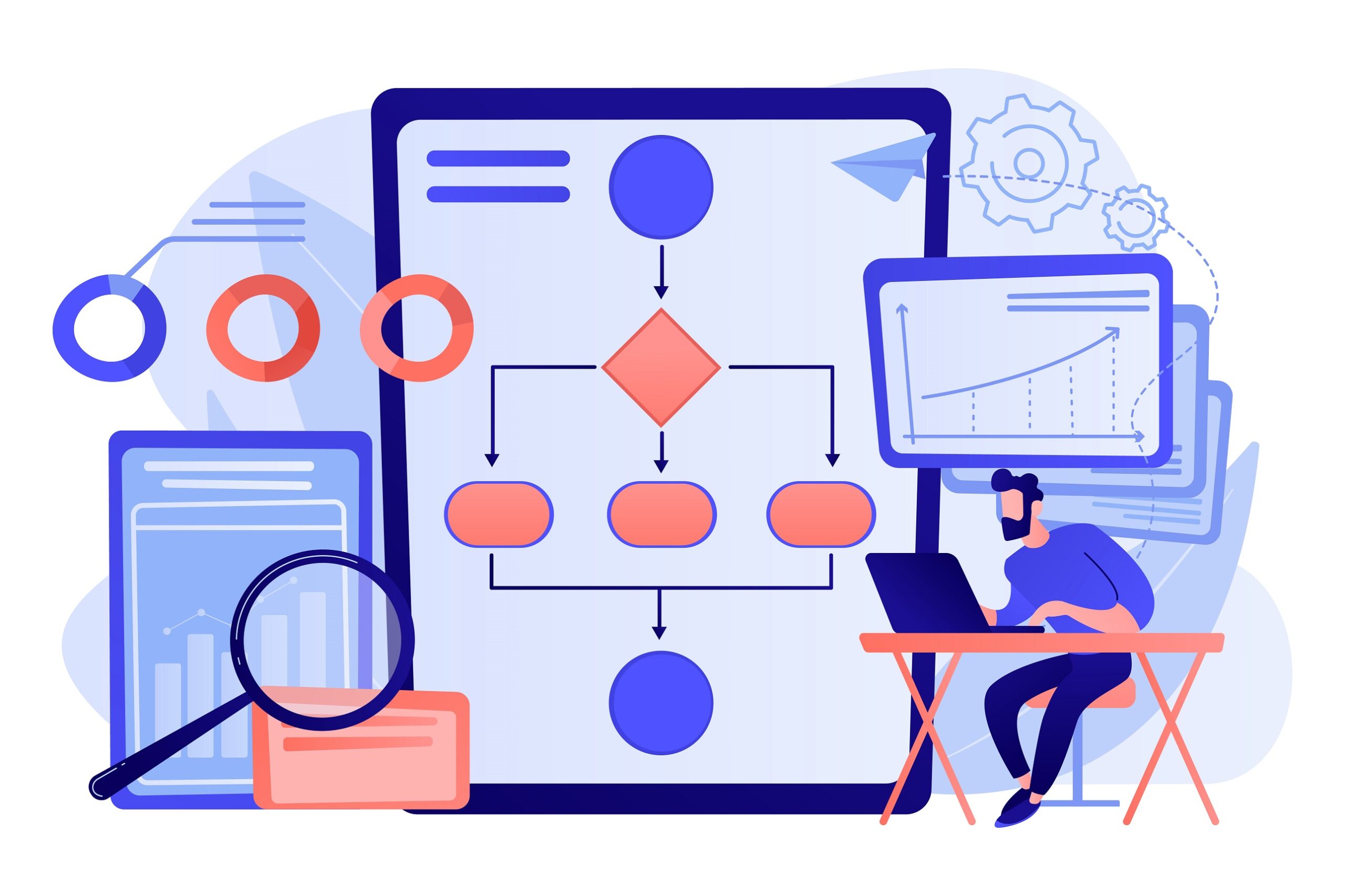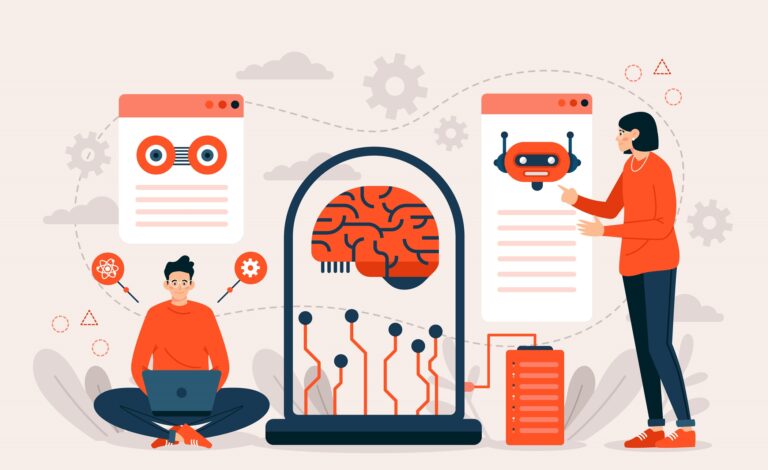The Benefits of Integrating AI into Your Workflow
The transformative power of Artificial Intelligence (AI) has left a significant mark on the world as we know it, revolutionizing industries across the board. From small businesses to multinational corporations, AI is increasingly becoming an indispensable tool. The power of AI to streamline operations, improve productivity, and generate insights is indisputable. But what are the real benefits of integrating AI into your workflow? In this detailed exploration, we will unpack the multifaceted advantages of AI in business, shedding light on why this technological powerhouse is a game-changer.
1. Increased Efficiency
In the bustling digital age, efficiency is paramount. Companies continually strive to achieve more, using fewer resources, and AI provides an ideal solution to this. The automation capabilities of AI are extensive, making it possible to streamline numerous routine tasks. This automation goes beyond mere time-saving.
AI operates continuously, without breaks, illness, or vacation time. As a result, companies can maintain a 24/7 productivity cycle, drastically increasing efficiency levels. Moreover, with AI handling the mundane tasks, employees are free to devote their time and talents to strategic, creative tasks, fostering an environment of innovation and growth.
Furthermore, AI enables rapid data processing, far surpassing human capabilities. Analyzing large volumes of data can be time-consuming and prone to errors when done manually. AI can analyze complex datasets in a fraction of the time, providing valuable insights quickly and accurately. This fast, reliable data analysis leads to rapid decision-making, propelling your business forward in the fast-paced market.
2. Improved Accuracy and Quality
AI brings a level of precision to business operations that is tough to achieve otherwise. Humans are fallible, and errors can creep into even the most meticulously handled processes. However, AI algorithms provide a high level of accuracy, ensuring that tasks are performed correctly the first time around.
From data entry to complex calculations, AI minimizes the risk of error, enhancing the quality of work. Consistency is another valuable advantage – once programmed, AI can perform the same task repeatedly with the same level of accuracy.
But what happens when there are changes or unexpected issues? AI comes with the capability of real-time error detection. AI systems can identify anomalies or errors as they occur, allowing for immediate correction. This ability not only maintains the quality of work but also saves the time and resources that would have been used to rectify issues.
3. Better Decision Making
The business world is full of decisions – some small, others monumental, but all crucial in shaping the organization’s path. Data-driven decision making has emerged as a key differentiator in today’s competitive business environment. AI comes into play here as a powerful tool for data analysis and decision making.
AI’s capacity to analyze big data surpasses human capabilities by leaps and bounds. It can dig deep into complex, varied datasets, identifying trends and patterns that could easily be overlooked by human analysts. This ability means businesses can tap into predictive analytics, giving them a glimpse into the future to make proactive, strategic decisions.
AI can also assist with risk assessment. It can analyze various risk factors, crunching numbers and assessing scenarios to provide a comprehensive risk assessment. With this information, businesses can make informed decisions, balancing potential gains against the associated risks.
4. Cost Savings
While implementing AI requires initial capital outlay, it’s an investment that pays off significantly in the long run. The automation of tasks leads to reduced labor costs. Businesses can get more done without a corresponding increase in human resources.
Reduced errors lead to significant cost savings too. Errors can be expensive to fix and may lead to wasted resources or missed opportunities. By maintaining a high level of accuracy, AI helps avoid these costs.
Operational costs can also be minimized with AI. From reducing energy consumption through smart systems to minimizing waste in manufacturing processes, AI can make operations more cost-effective. In the long run, these cost savings can have a significant impact on the company’s bottom line.
5. Improved Customer Experience
In the age of the customer, businesses are continually seeking ways to enhance customer experience. AI has emerged as a valuable ally in this quest. AI-powered systems like chatbots can provide instant, personalized customer service, addressing queries and issues promptly.
AI can also analyze customer behavior and preferences to provide personalized recommendations, enhancing the customer journey. This targeted marketing can lead to improved customer engagement and loyalty.
6. Scalability
Scalability can be a significant challenge for businesses. As demand increases, businesses need to scale up their operations. However, scaling often involves a corresponding increase in resources, which can be expensive and challenging to manage. AI provides an elegant solution to this problem.
With AI, scaling doesn’t need to mean a corresponding increase in resources. Whether it’s serving more customers, handling more data, or expanding product lines, AI systems can accommodate increased demand without a proportionate increase in resources. This scalability can give businesses a significant advantage in a growing market.
7. Competitive Advantage
The business landscape is highly competitive, and businesses are constantly seeking ways to differentiate themselves. AI can provide a significant competitive edge. From providing superior customer service to making informed decisions and optimizing operations, AI-powered businesses are a step ahead of the competition.
In this data-driven age, businesses that harness the power of AI can operate more efficiently, make better decisions, and provide exceptional customer service. Those that fail to embrace AI risk being left behind.
Conclusion
Integrating AI into your business operations is not just a smart move – it’s essential for survival in the modern business landscape. The benefits of AI are manifold – improved efficiency, enhanced accuracy, informed decision making, cost savings, superior customer experience, scalability, and a competitive edge.
As we have seen, AI is not a futuristic concept – it’s here, and it’s transforming the way businesses operate. The question is not whether to adopt AI, but rather how to do it most effectively. By strategically integrating AI into your operations, you can harness its power to drive growth and success. The future of business is intertwined with the future of AI, and it’s a future full of promise.







